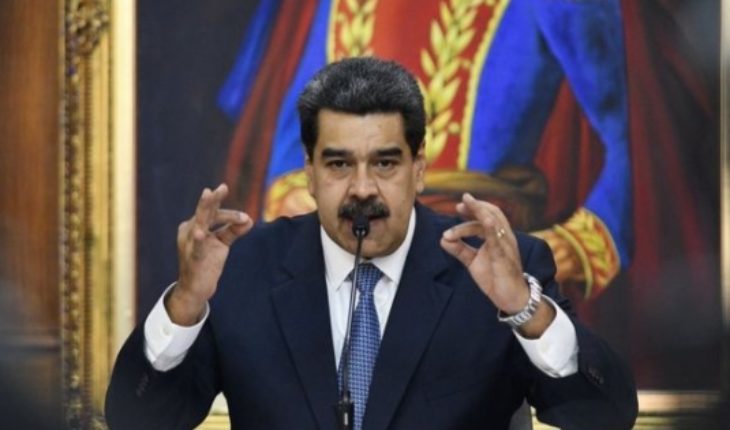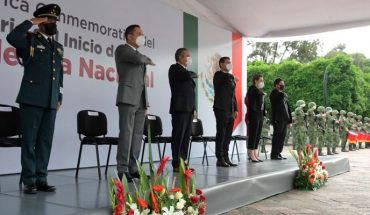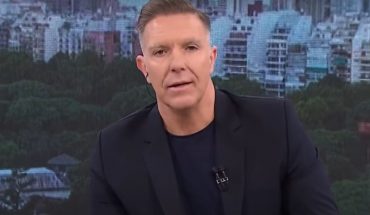It is the currency of the “empire”, as the Chavista rhetoric usually refers to the United States, but Nicolas Maduro now believes in it.
The Venezuelan president defended in a Sunday interview the growing role that the currency plays in Venezuela’s economy as an “escape valve” in the face of the crisis, a statement that contrasts with what for years was the line of his government.
The country is suffering from a severe economic crisis. According to international monetary fund (IMF) estimates, Gross domestic output has more than halved since 2013, the year Maduro came to power. And hyperinflation, which, according to the Central Bank of Venezuela closed 2018 above 130,000%, causes the national currency, the bolivar, to constantly lose its value, which has incentivized an increasingly widespread use of the dollar.
A recent report by the consultancy Ecoanalytics estimated that dollar transactions are already more than 53% of the total. In Maracaibo, one of the most important cities in the country, 86% would already reach.
What Maduro said
In an interview on the Televen network with José Vicente Rangel, a veteran politician who was vice president of Hugo Chávez, Maduro referred to the increasing dolarization.
“I don’t see it wrong (…) that process they call a dolarization; it can serve the recovery and deployment of the country’s productive forces and the functioning of the economy (…) thank God there exists,” the president said.
More and more shops in Venezuela show prices also in dollars. However, he said, “Venezuela will always have its currency (…) we’re always going to have the bolivar, and we’re going to get it back and we’re going to defend it.”
Opposition leader Juan Guaidó, recognized as interim president of Venezuela by the United States and most Latin American and European Union states, charged Maduro after hearing his words: “The fail of Miraflores recognizes today that the country is dolarized.”
What I said before
Maduro’s public approval of the use of the dollar surprised many.
In the campaign leading up to the 2018 presidential election, he criticized the proposals to make the country of rival candidate Henri Falcón.
“He doesn’t know what he’s saying,” said Maduro, who added that “that proposal to dolarize and end Venezuela’s currency is an unconstitutional proposition.”
When In February 2018 Maduro announced the launch of the petro, the cryptocurrency with which it hoped to relaunch the Venezuelan economy and whose real existence many doubt more than a year later, both he and other members of his government repeated that he had the Venezuela’s oil reserves, an advantage over the dollar, whose value is strictly fiduciary.
And in August of this year, Diosdado Cabello, president of the pro-government National Constituent Assembly and considered one of the most important leaders in Chavismo, was in favor of “forcing transactions to be in bolivars or barter”, as “strengthen the bolivar.”
Hyperinflation causes the bolivar to constantly lose value. Opposition to the dollar did not stay in the messages.
As Henkel Garcia points out to BBC Mundo, an analyst for the Econometric portal, “the government did everything it could to block the dying and even pursued those who published how much the exchange rate was in the parallel market,” the majority in the country.
Economist Francisco Rodríguez, one of those who designed candidate Falcón’s economic program, considers: “The cost to our country of improvisation and irresponsibility of those who today hold power is incalculable.”
What has changed Maduro’s mind
In recent months, under pressure from the serious economic situation and the impact of U-c.-imposed sanctions, Maduro’s government has been relaxing many of the controls that for years restricted economic activity in Venezuela.
Despite the anti-capitalist rhetoric of his “revolutionary” government, economists such as Asdrúbal Oliveros of Ecoanalytics believe that Maduro “is implementing an adjustment plan, even if he does not admit it.”
Sometimes without publicly announcing it, the authorities abandoned practices that had been one of the hallmarks since Chávez’s time, such as price control and change control, which, according to Henkel García, “has allowed greater dynamism to the economy.”
Successive monetary reforms have not served to stem the loss of value of the bolivar and the extent of the use of currencies. By allowing dollars in and giving financial agents greater freedom, “Maduro has gained some time and relieved the social pressure he was subjected to,” says Henkel Garcia.
For the expert, this “new pragmatism” responds to a “political survival strategy.”
Ingerzon Freites, professor of economics at the Central University of Venezuela, partially agreed with the new direction the government seems to have chosen.
“The current degree of dolarization is effectively an escape valve for the crisis facing the country, so at the juncture and in the short term it could be viable,” he said.
For Garcia, “without the dollar the economy would be even worse, but the government has done nothing but recognize something that was happening and that could not stop.”
Will the dollar be Venezuela’s new currency?
Garcia notes that “experience shows that dollarization processes are irreversible in the short term and Maduro’s words will further encourage those who still doubt to use the dollar.”
Venezuela is not the first state in Latin America to resort to the dollar to curb inflation and stabilize its economy. Others such as Ecuador, Peru and Bolivia have done so before.
But in Venezuela, the process is not being legally regulated, but it is the society that is spontaneously holding on to green banknotes without a clear legal framework, which experts say poses problems.
Economist Francisco Rodríguez says “a real dollarization would allow all Venezuelans to receive wages and have dollar bank deposits.”
Unable to enter its dollars into the banking system, an economy in which large amounts of foreign exchange cash are handled is being favored, which, as Luis Vicente León, of the consultancy Datanálisis, warns, “is the ideal environment for a drug trafficker, who can get into the system without drawing attention.”
The worst unemployed are the ones who charge in bolivars, like public employees. The big losers in the current scenario, Rodriguez argues, “are the ones who win in bolivars”: the majority of the population, according to the studies, including state employees, whose wages rise much less than prices do.
Although Maduro recalled that those who receive their income in the local currency “save slates the homeland,” thanks to the bond and aid system implemented by Chavistas governments.
Experts claim that the dolarization is fully and legally established, but some doubt that this is possible under the current US sanctions scheme, as Garcia says, “as the government is sanctioned, prevent a process of formal dolarization.”
The analyst says the dollar has “given oxygen to the economy,” but it will not be enough to end the crisis in Venezuela.
“This requires solving the debt problem and re-attracting massive investment,” challenges to a country that the United Nations says more than 4 million people have left in recent years in search of opportunities that they can’t find here .
translated from Spanish: Venezuela dollarization: how Nicolás Maduro changed his mind about the dollar and its role in the economy
November 19, 2019 |





